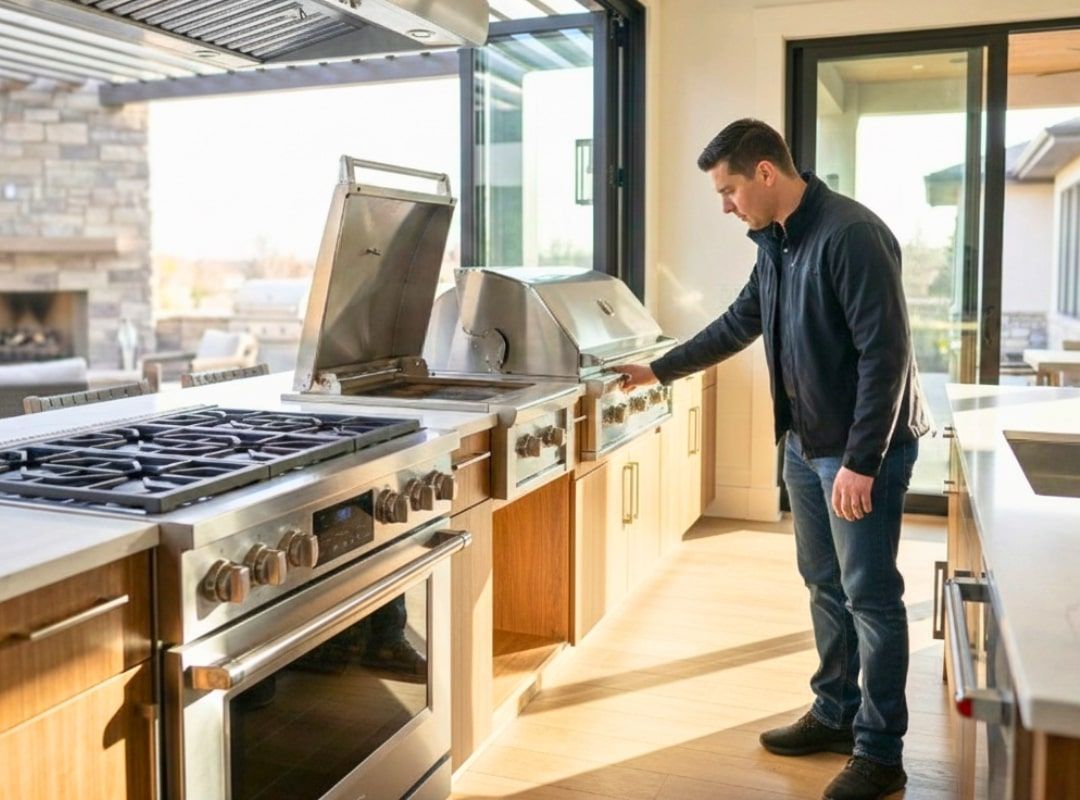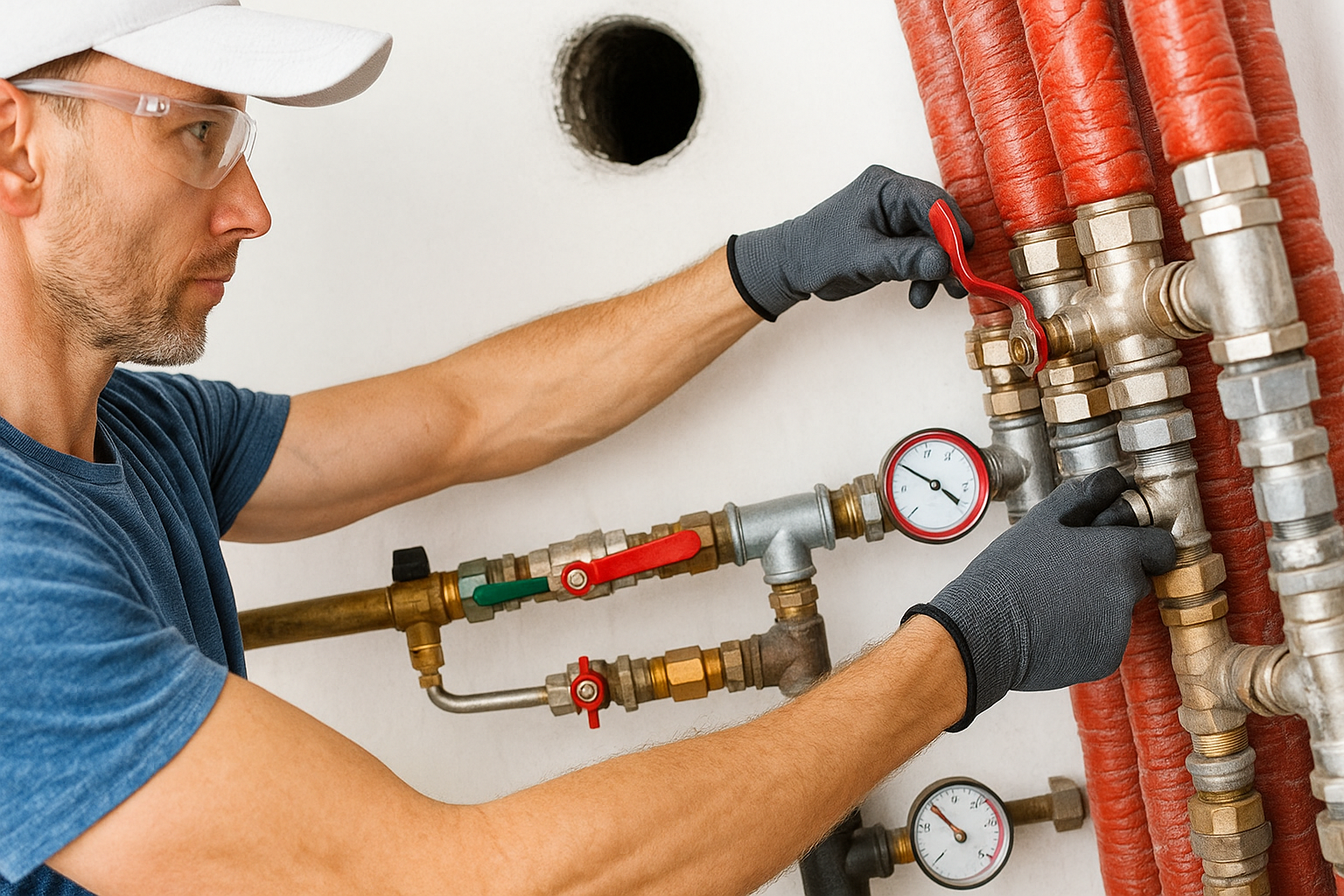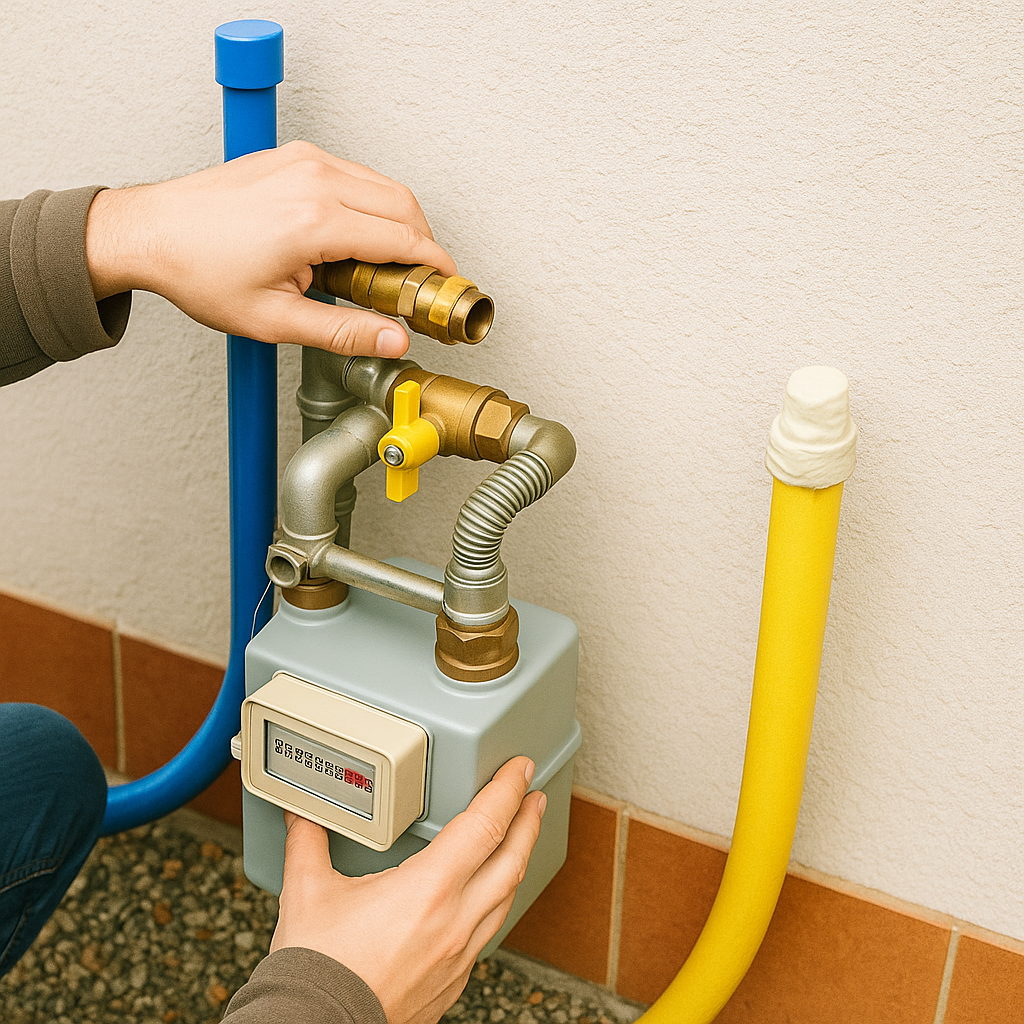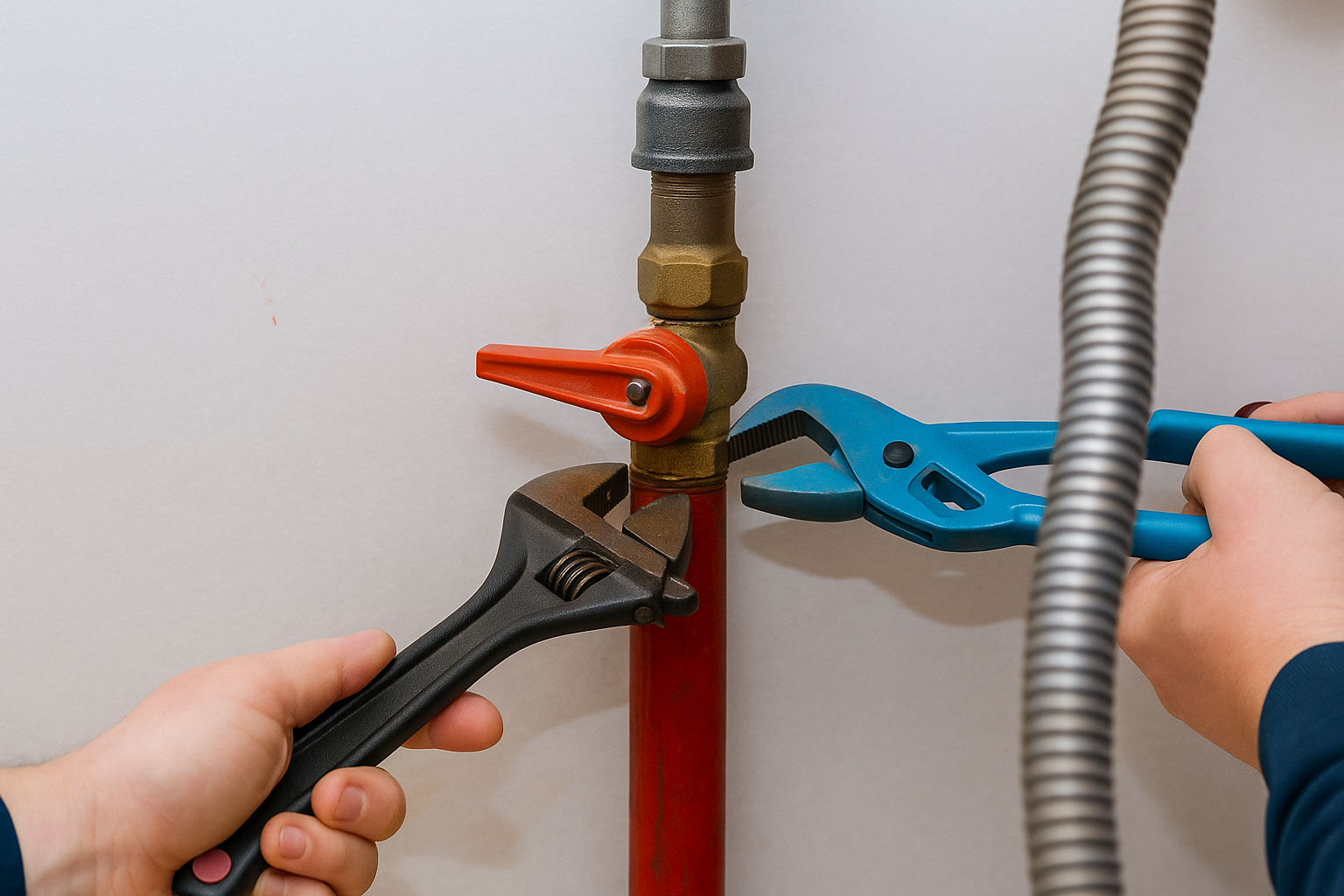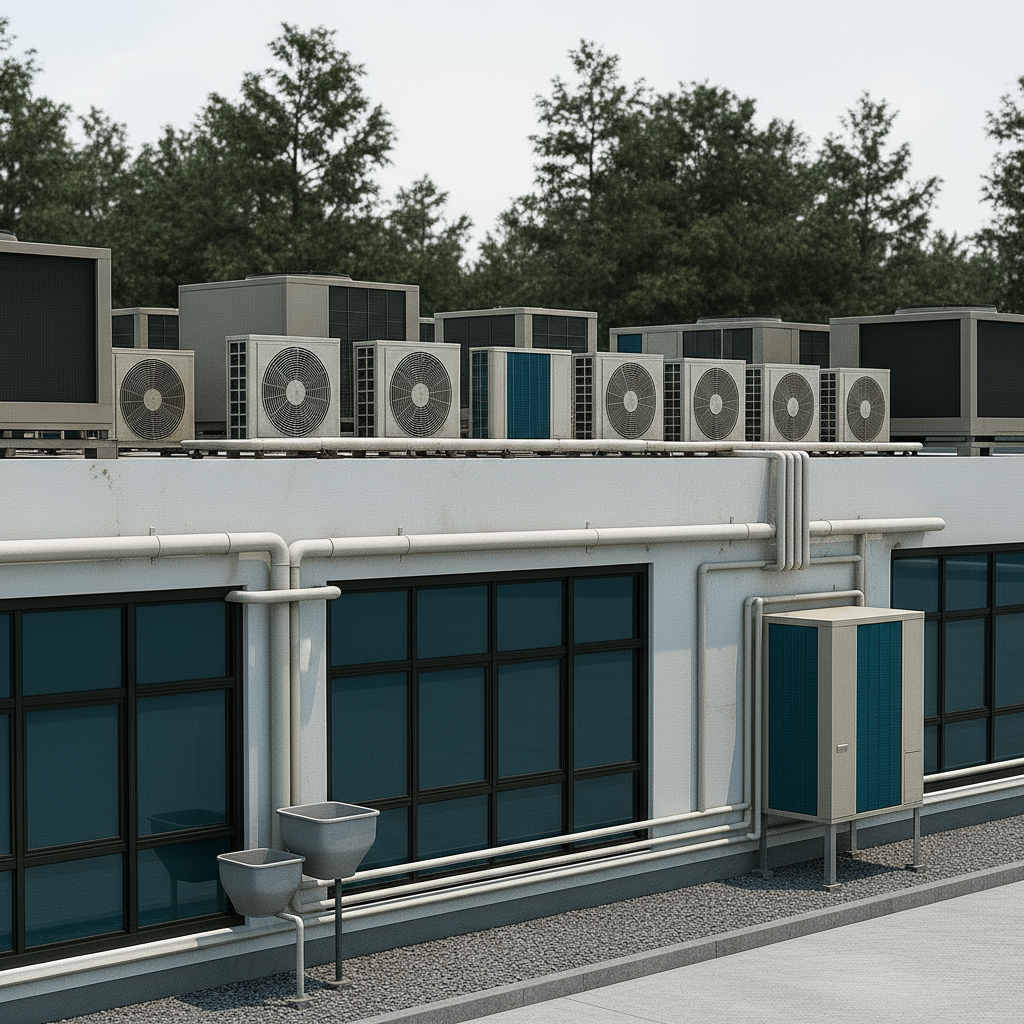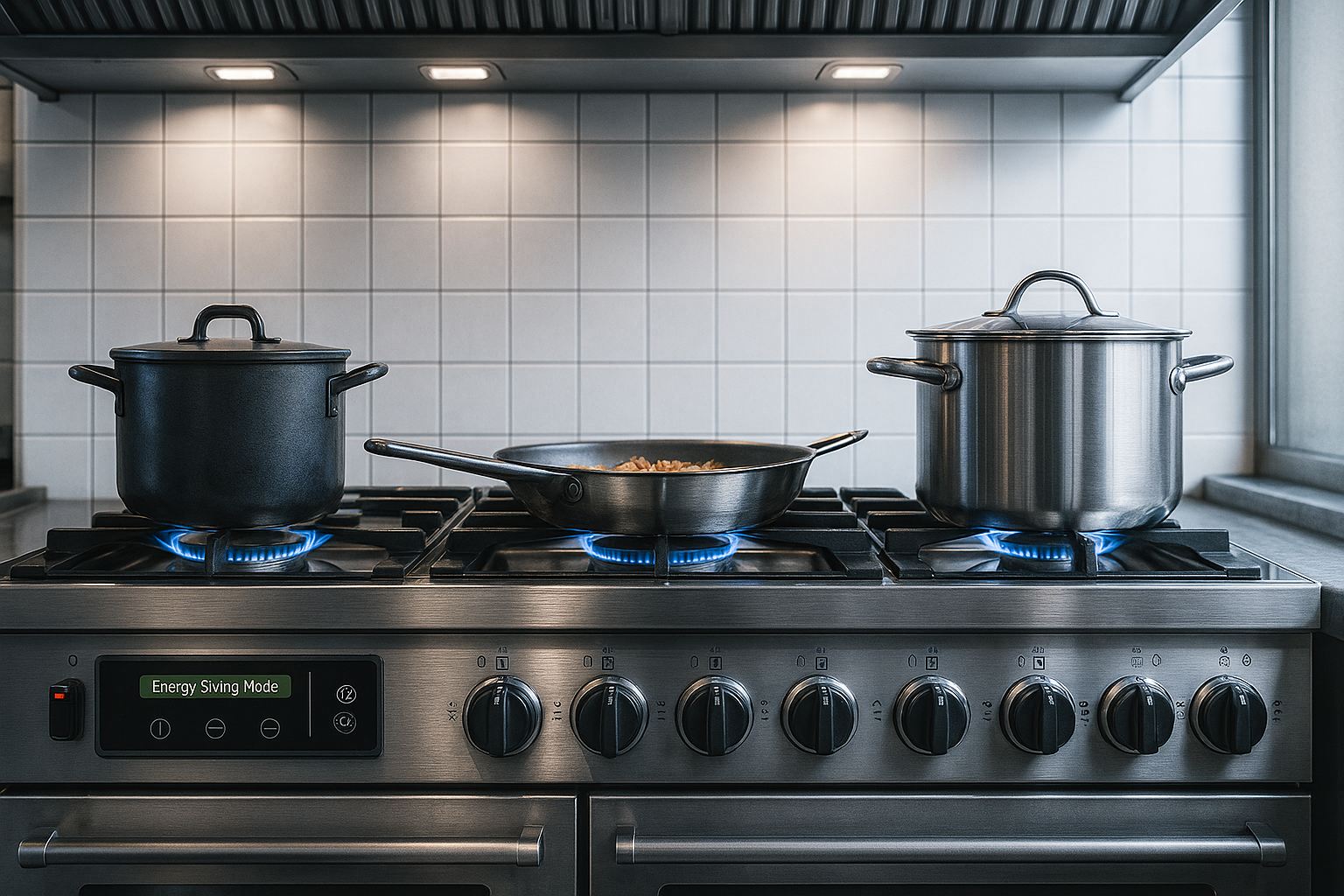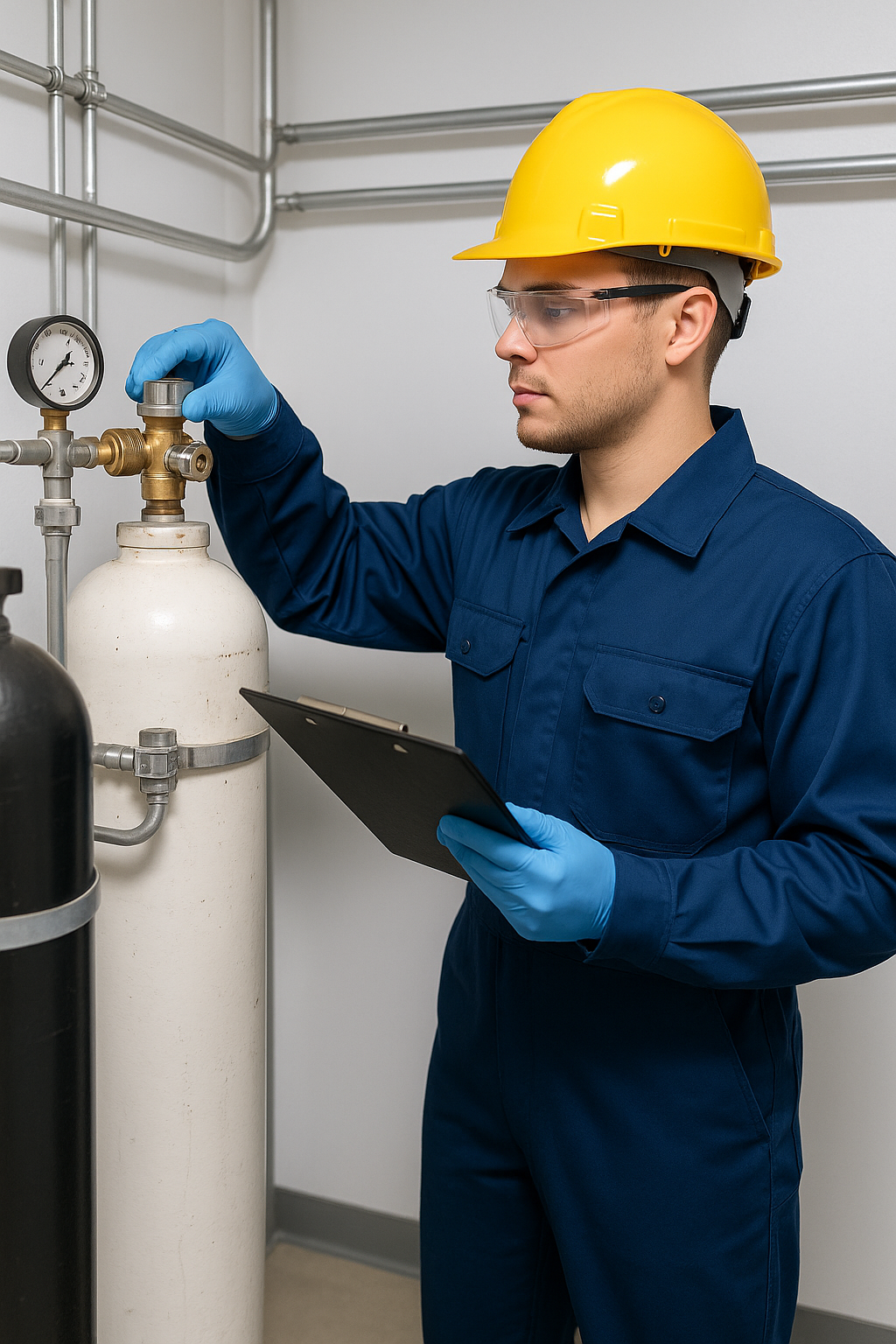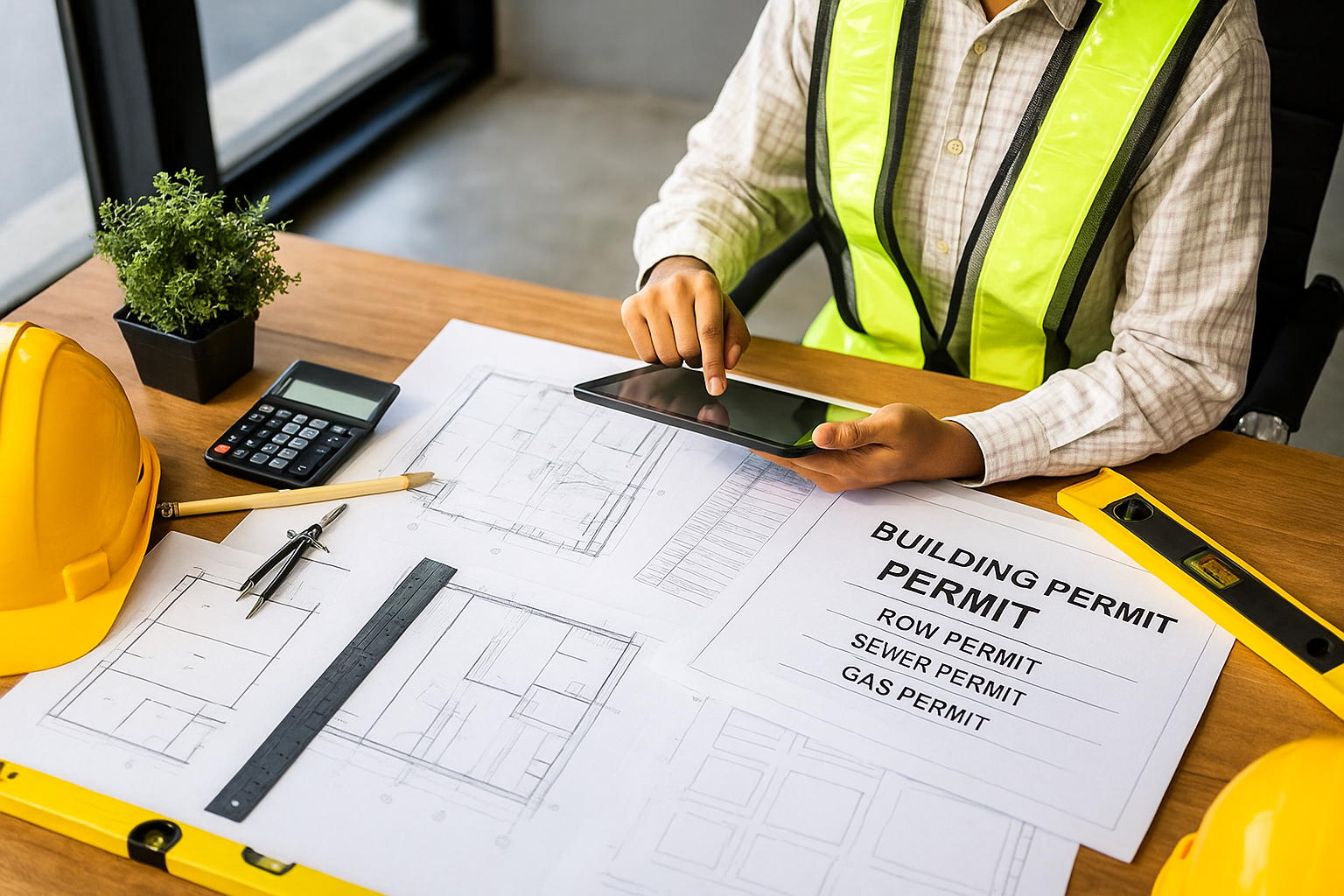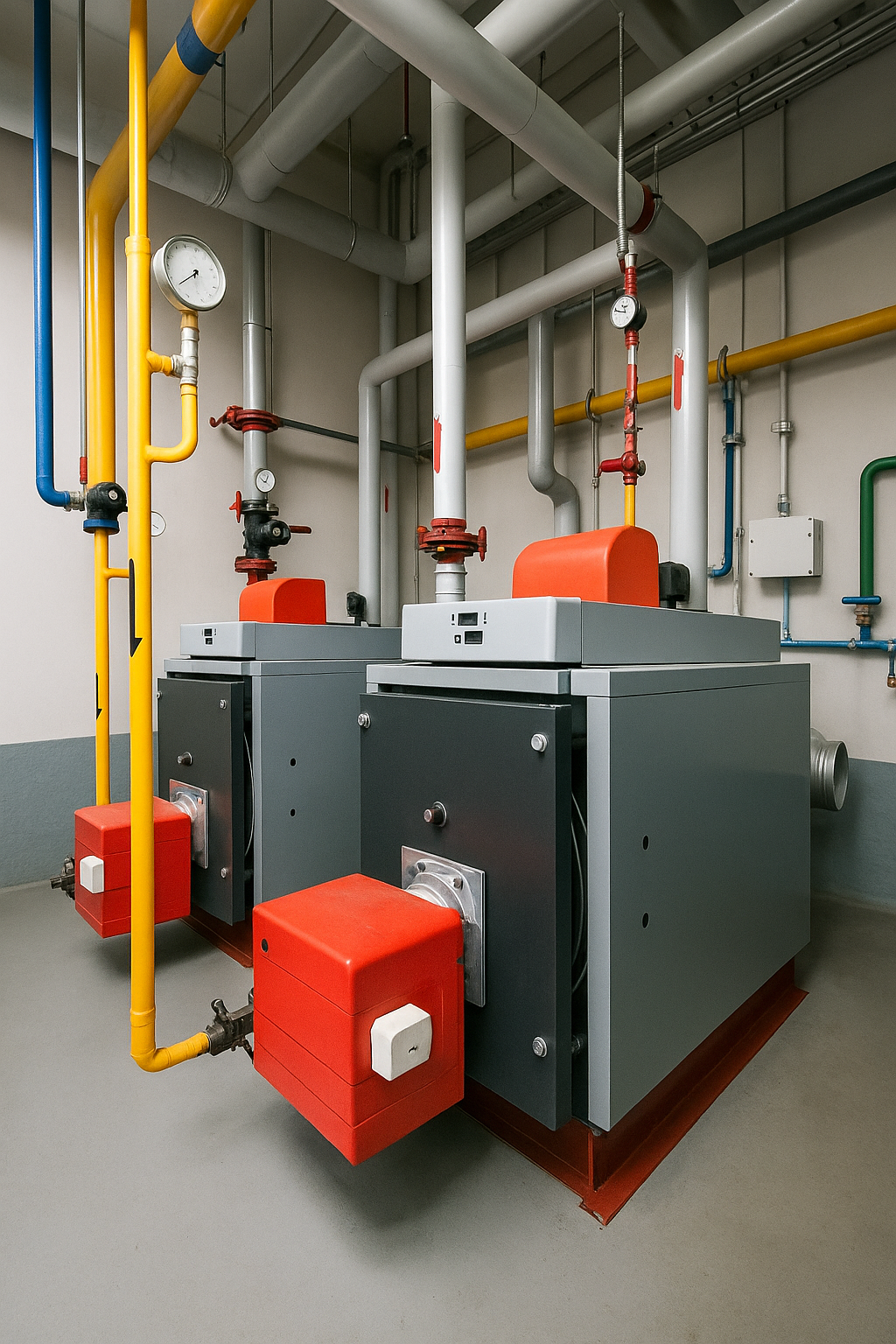Gas Leak Detection & Response Guide – Safe Detection, Best Practices & Emergency Protocols
TLDR;
A gas leak is dangerous and needs an immediate, safe response. Detect it through smell, sound, sight, or detectors, then evacuate, avoid ignition sources, shut off gas if safe, and call emergency services and your gas company. NOVA Gas recommends pairing detection tools with regular inspections and training to protect people and property.
What Is Gas Leak Detection And Why It Matters
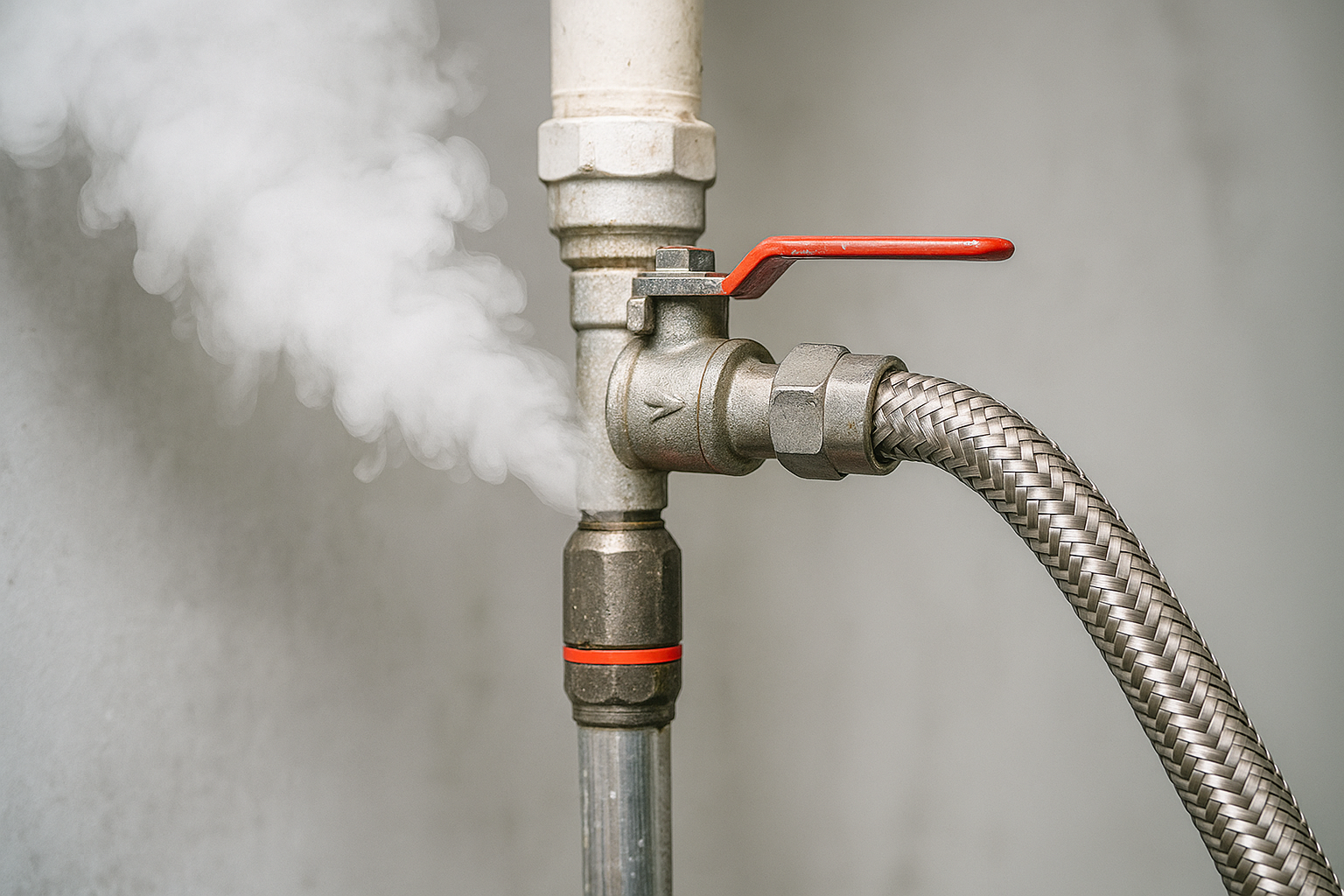
Gas leak detection identifies unintended gas releases from pipelines, appliances, or storage systems. Quick detection reduces the risk of fire, explosion, poisoning, and environmental damage.
Natural gas is odorless, so suppliers add mercaptan to give it a rotten egg smell for easier detection.
Risks Of Undetected Gas Leaks
- Fire or explosion if gas meets an ignition source
- Health problems from inhalation, including headaches, dizziness, or worse
- Damage to surrounding vegetation and wildlife
- Regulatory penalties for industrial facilities that fail to act
Types Of Gas Leaks
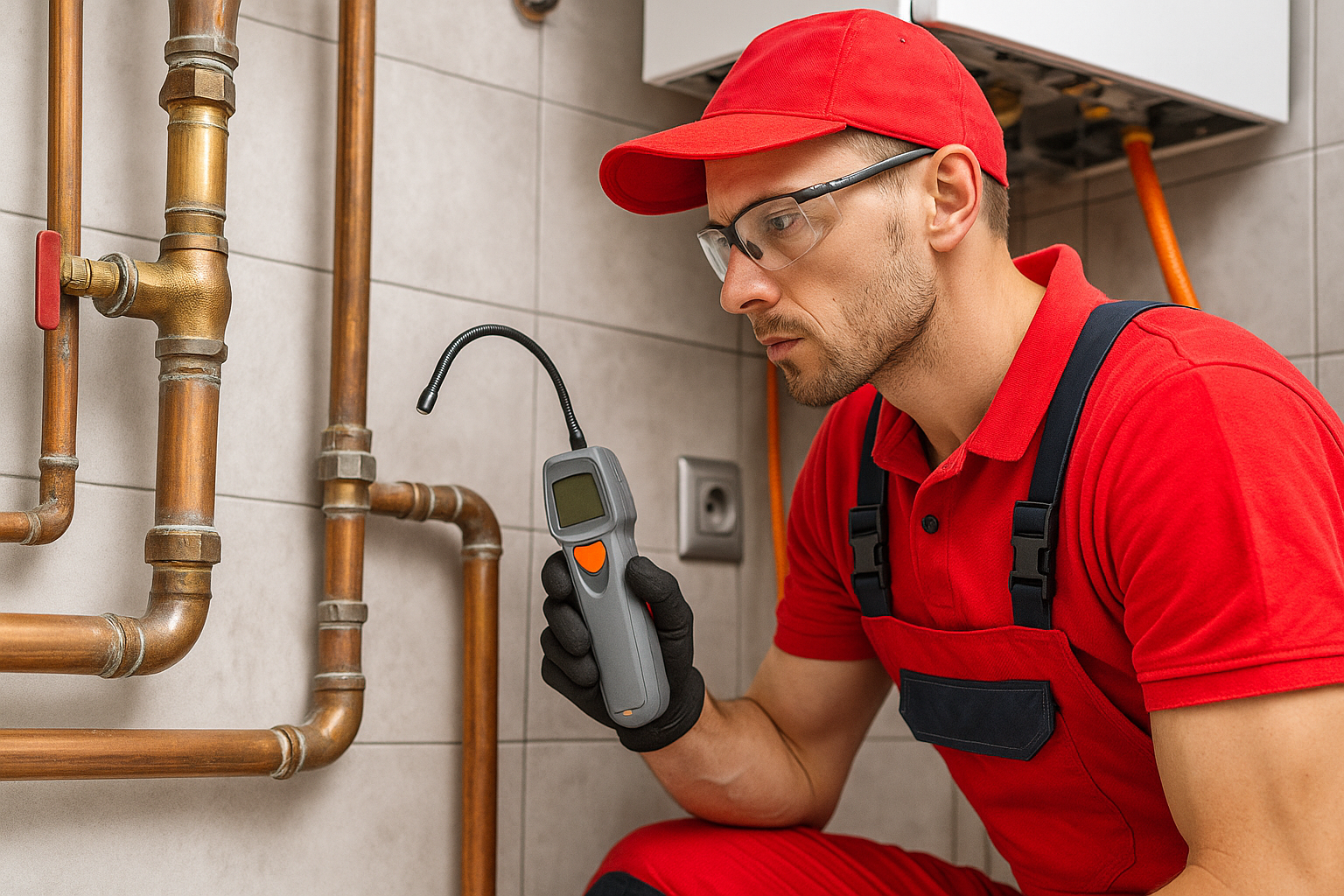
Fugitive Emissions
Leaks from valves, flanges, or seals in industrial systems.
Pipeline Leaks
Caused by corrosion, ground movement, or construction damage.
Appliance Leaks
From worn hoses, faulty regulators, or poor installation.
Call NOVA Gas Today!
Common Gas Leak Detection Methods And Technologies
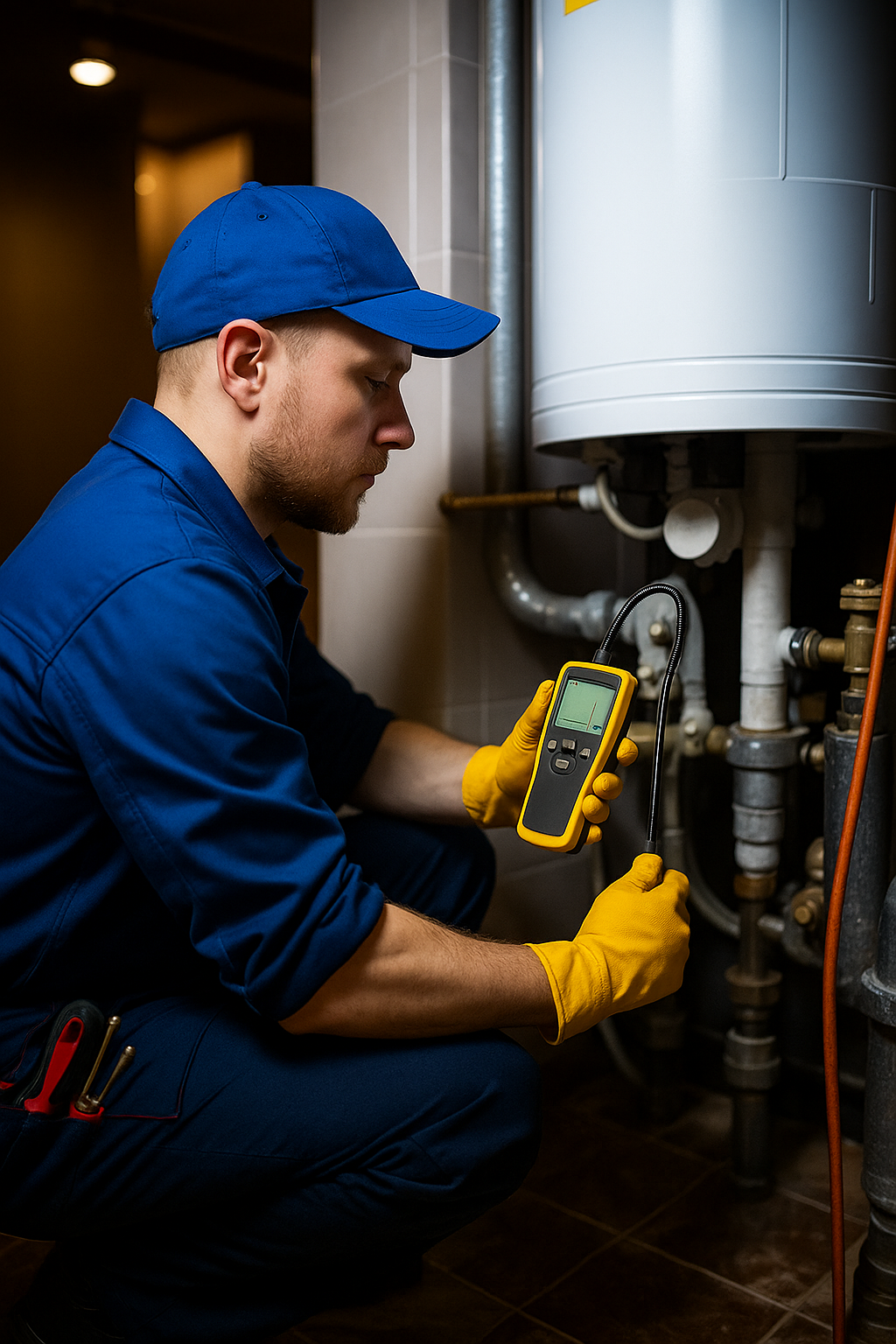
Electronic And Sensor-Based Detectors
- Infrared sensors detect gases by identifying their absorption of infrared light
- Electrochemical sensors measure chemical reactions with gas particles
- Metal oxide semiconductor sensors detect resistance changes caused by gas contact
- Ultrasonic detectors pick up high-frequency sound waves from pressurized leaks
- Leak noise correlators locate underground leaks by comparing sound arrival times
Tracer Gas Leak Testing
- Helium mass spectrometry uses helium as a safe, detectable tracer
- Hydrogen sniffers detect small hydrogen traces added to test systems
Visual And Physical Signs Detection
- Rotten egg smell from mercaptan in natural gas — one of the easiest ways to
spot a gas leak.
- Hissing or whistling sounds from lines or appliances
- Dead patches in otherwise healthy vegetation
- Bubbling in standing water over buried lines
- Soapy water test for pinpointing leaks in small appliances or connections
Advanced And AI-Based Methods
- Infrared imaging cameras show gas plumes invisible to the eye
- Continuous methane monitoring networks detect emissions in real time
- Machine learning models predict leak risks based on historical data and system performance
Immediate Response Steps When A Leak Is Detected
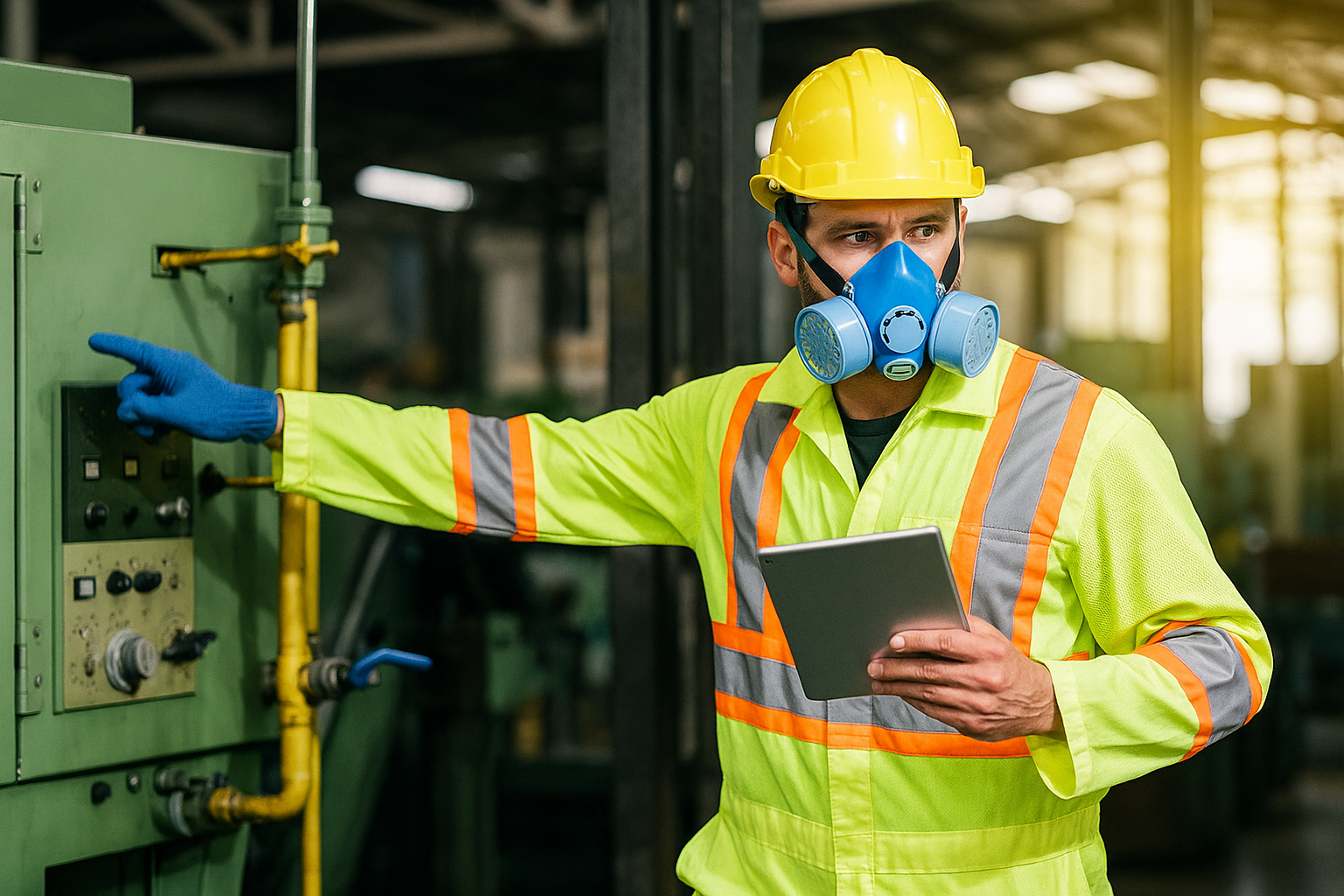
Safety Actions
- Evacuate the area immediately
- Do not use electrical switches, phones, or create sparks
- Shut off gas valves only if safe and trained to do so
- Call 911 and your gas company’s emergency number from a safe location, then contact professionals trained in
Emergency Gas Leak Repair for safe and compliant service.
Assembly And Roll Call
- Assemble at a predetermined safe location
- Account for all people before emergency responders arrive
Role Of Trained Professionals And PPE Before Re-Entry
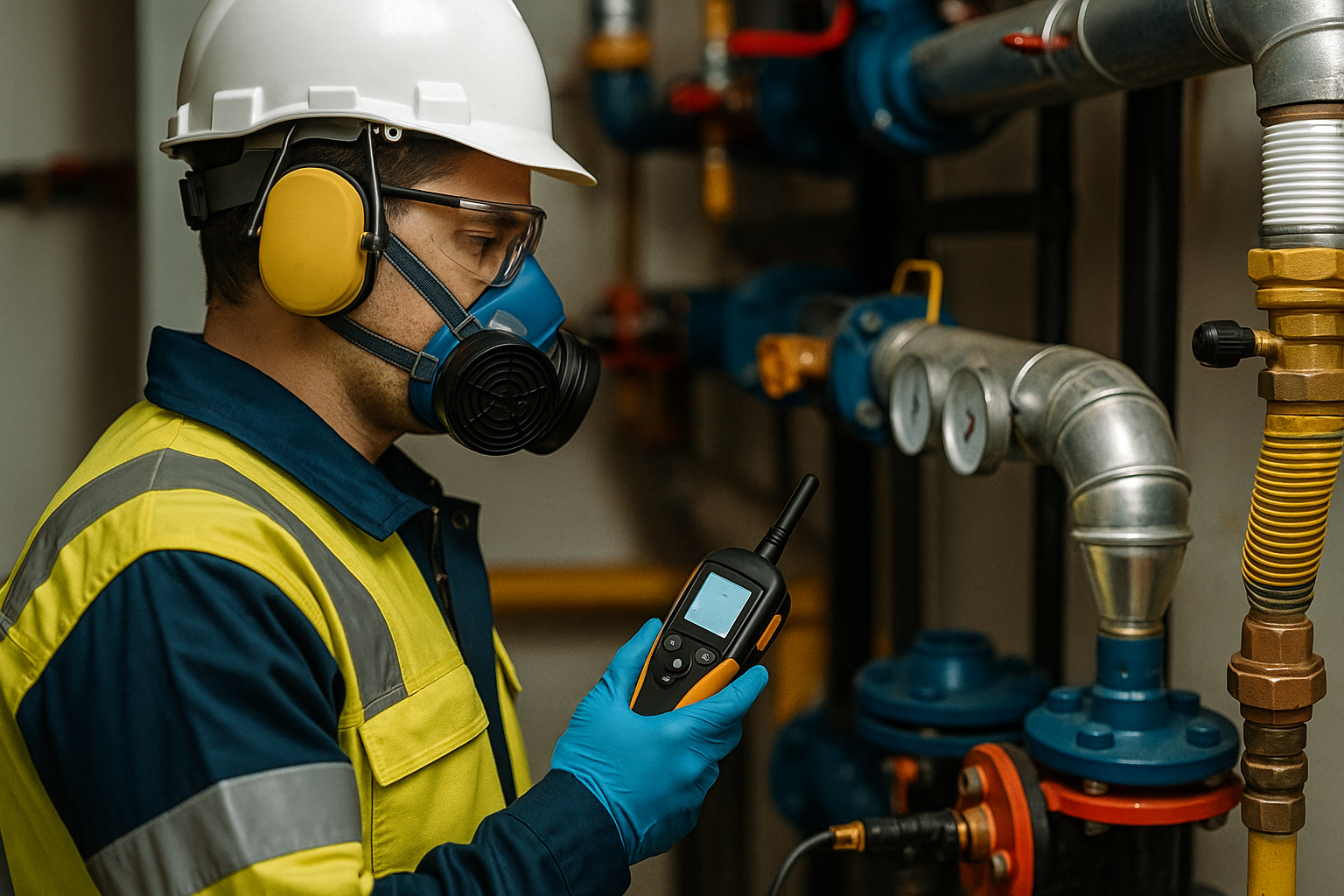
Only certified technicians should inspect and repair leak sources. They use specialized detectors, follow NFPA safety standards, and wear protective equipment to avoid ignition or inhalation hazards. NOVA Gas emphasizes that re-entry without clearance is unsafe.
Call NOVA Gas Today!
Best Practices In Leak Detection And Repair (LDAR)
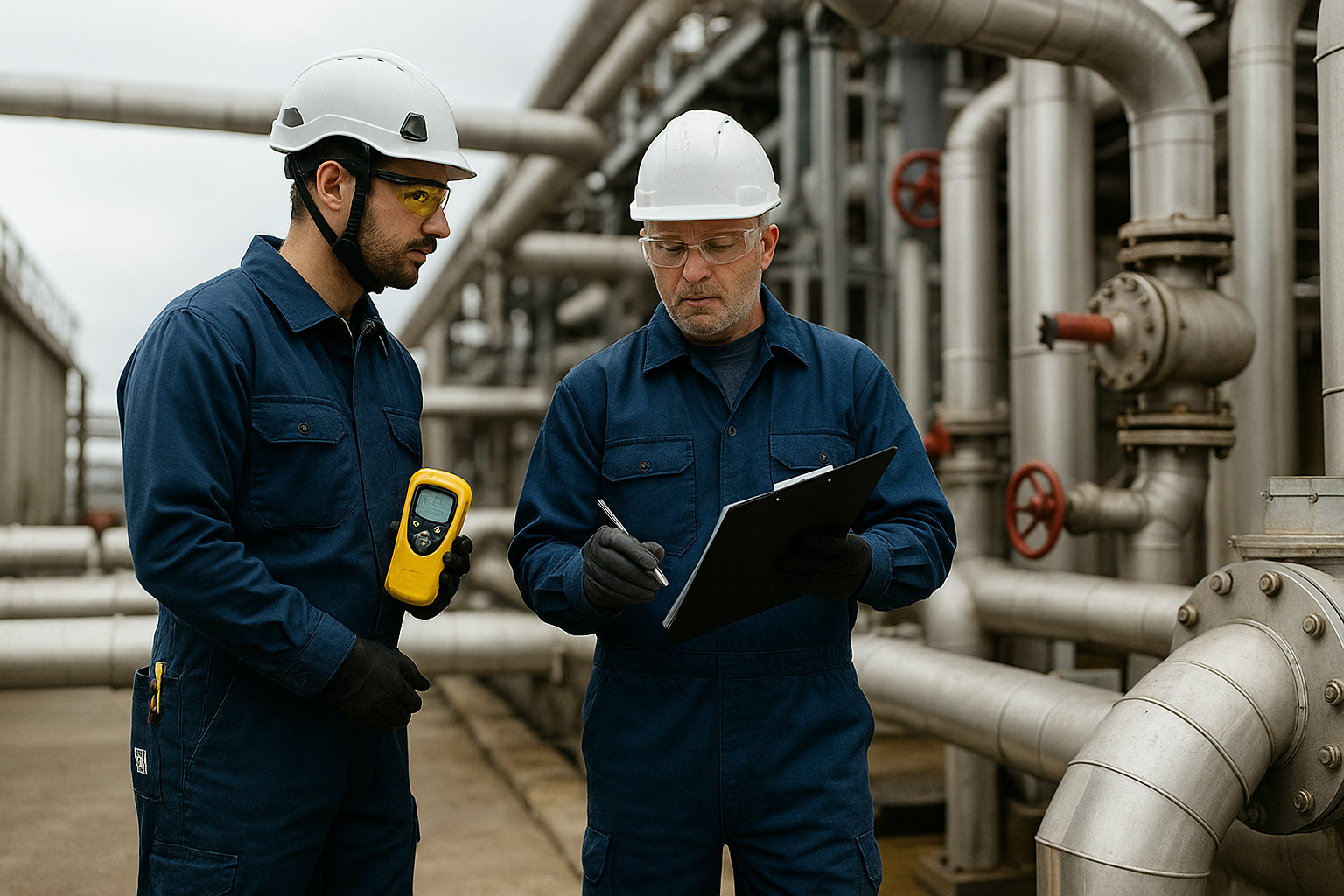
Inspection And Maintenance
- Maintain a detection schedule for pipelines, appliances, and fittings
- Calibrate detection tools regularly to ensure accuracy
- Keep detailed records of inspections and repairs
Regulatory Compliance
- Follow EPA LDAR regulations and PHMSA pipeline safety rules
- Apply NFPA safety guidelines in all detection and repair work
Strategies For Industrial Prevention
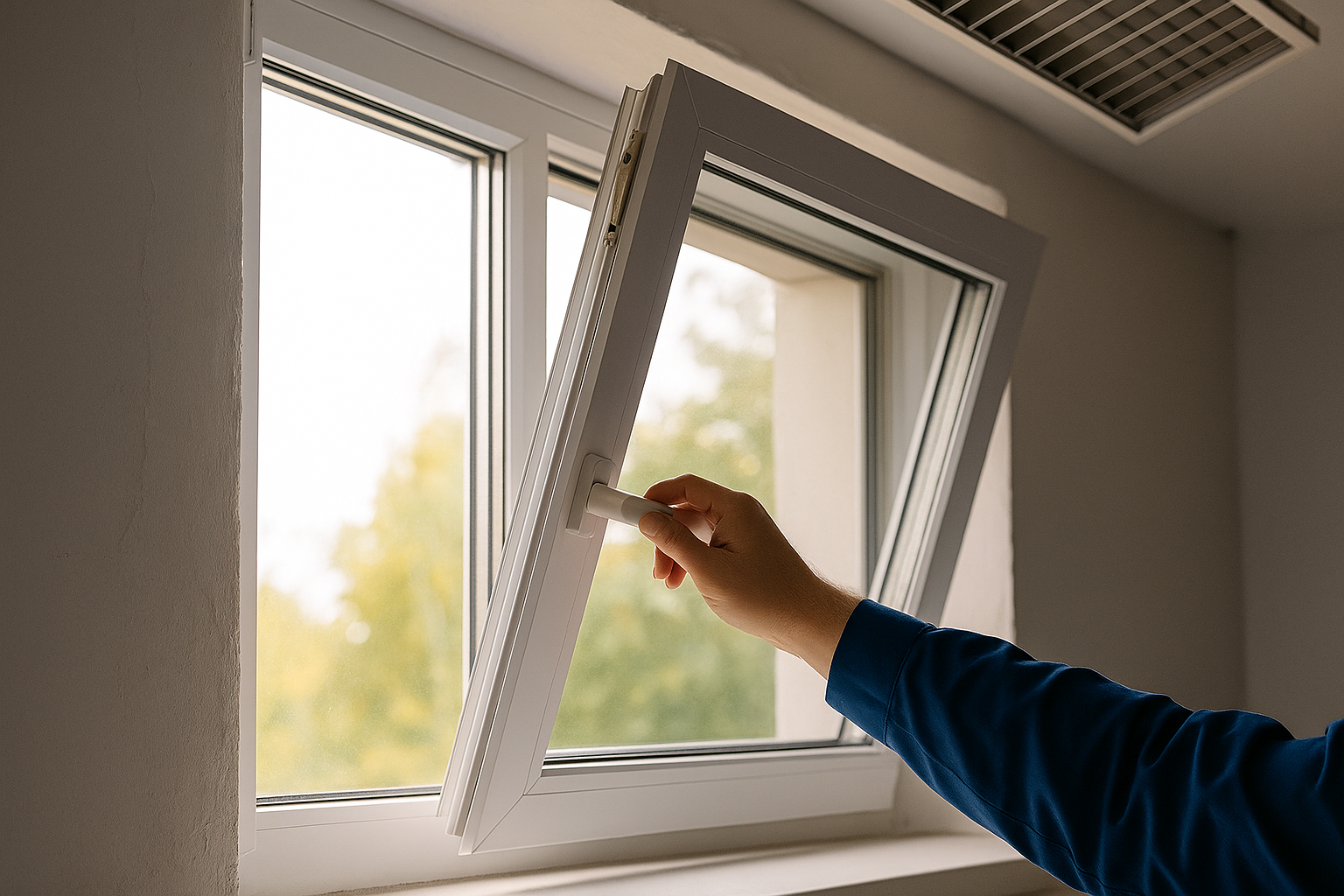
- Ensure adequate ventilation in facilities handling combustible gas
- Control ignition sources near gas equipment
- Use trained gas contractors for installations and repairs
- Conduct regular employee training on detection and evacuation procedures
Tools, Equipment, And Emerging Trends

Detector Selection
- Residential and industrial detectors with visual and audible alarms
- Smart detectors with Wi-Fi alerts for remote monitoring
Technology Integration
- IoT-enabled sensors integrated into home and industrial safety systems
- Data analytics for predicting maintenance needs and preventing failures
- Strategic sensor placement for maximum coverage in high-risk zones
Preventive Measures And Maintenance
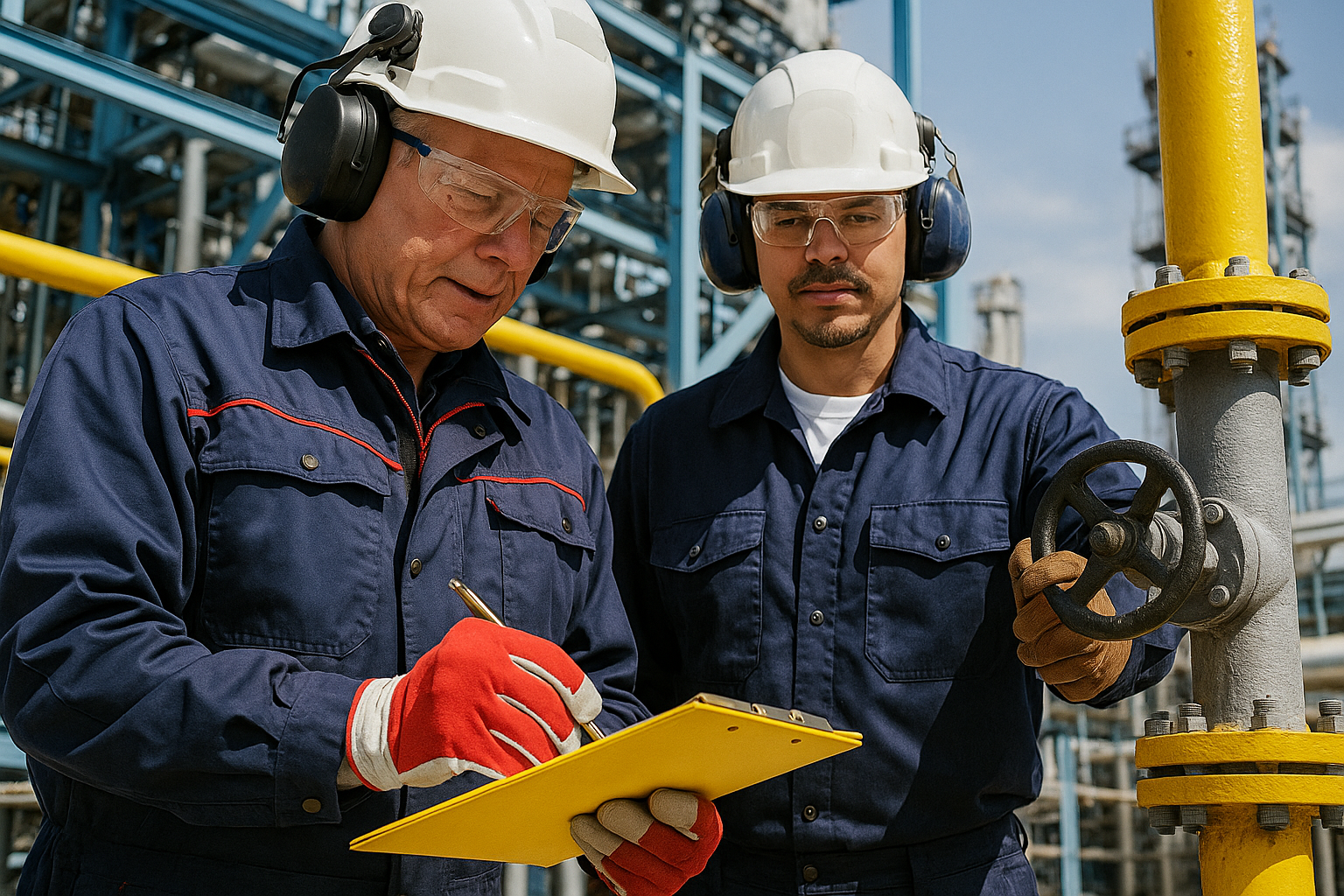
- Schedule professional
Gas Line Inspection & Maintenance for gas lines and appliances at least annually to catch problems before they become emergencies.
- Replace old piping and corroded fittings promptly
- Use protective coatings or cathodic protection for underground pipelines
- Train all occupants or employees on emergency procedures
- Conduct regular drills to test evacuation readiness
- Keep gas shutoff tools accessible and labeled
Call NOVA Gas Today!
Training And Emergency Plan Updates
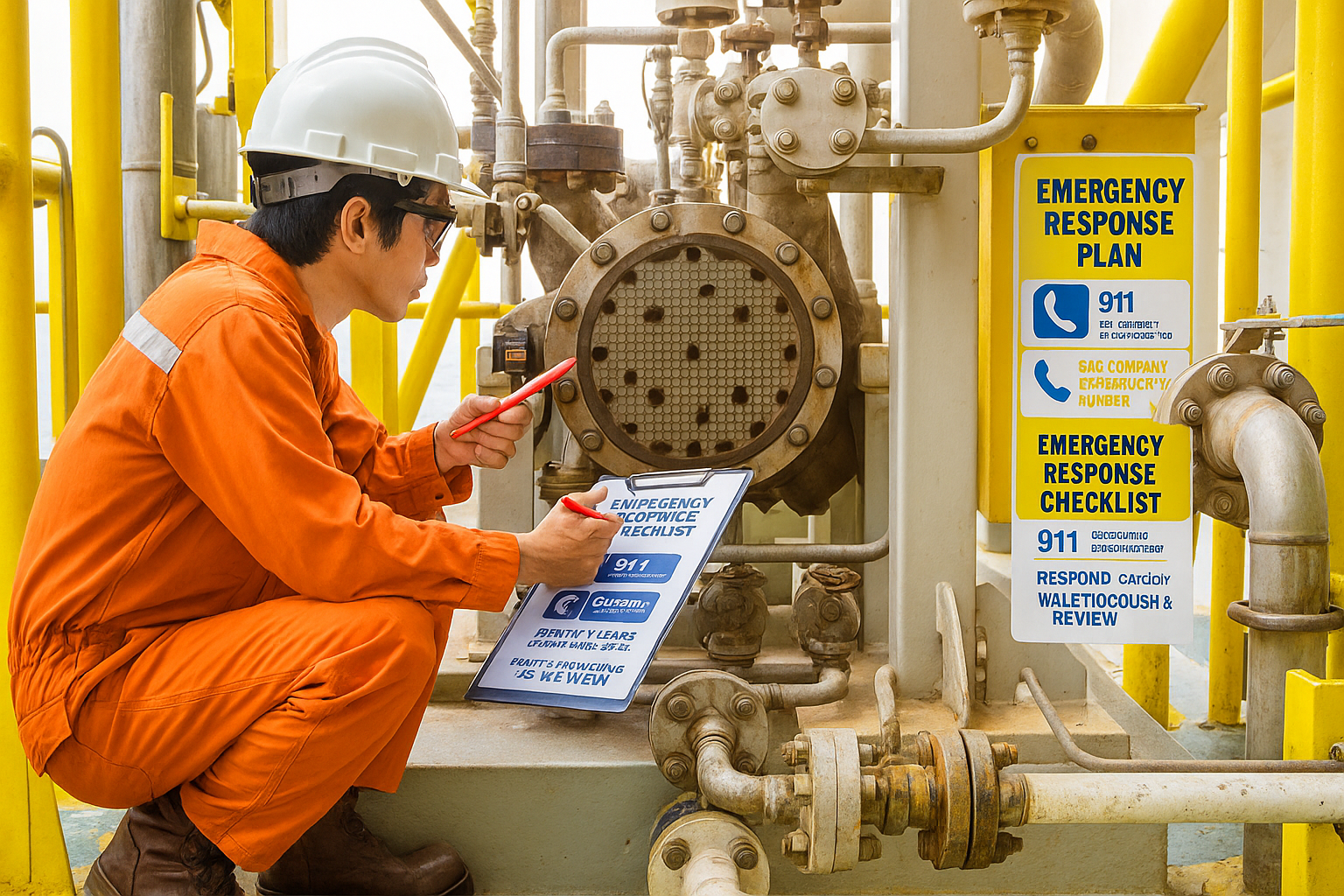
- Review and update emergency response plans each year
- Include contact numbers for emergency services and the gas company in visible locations
- Train staff or household members to identify leaks and respond correctly
- Coordinate with local fire departments for facility walkthroughs and hazard reviews
Gas Leak Safety Tips For Homes And Businesses
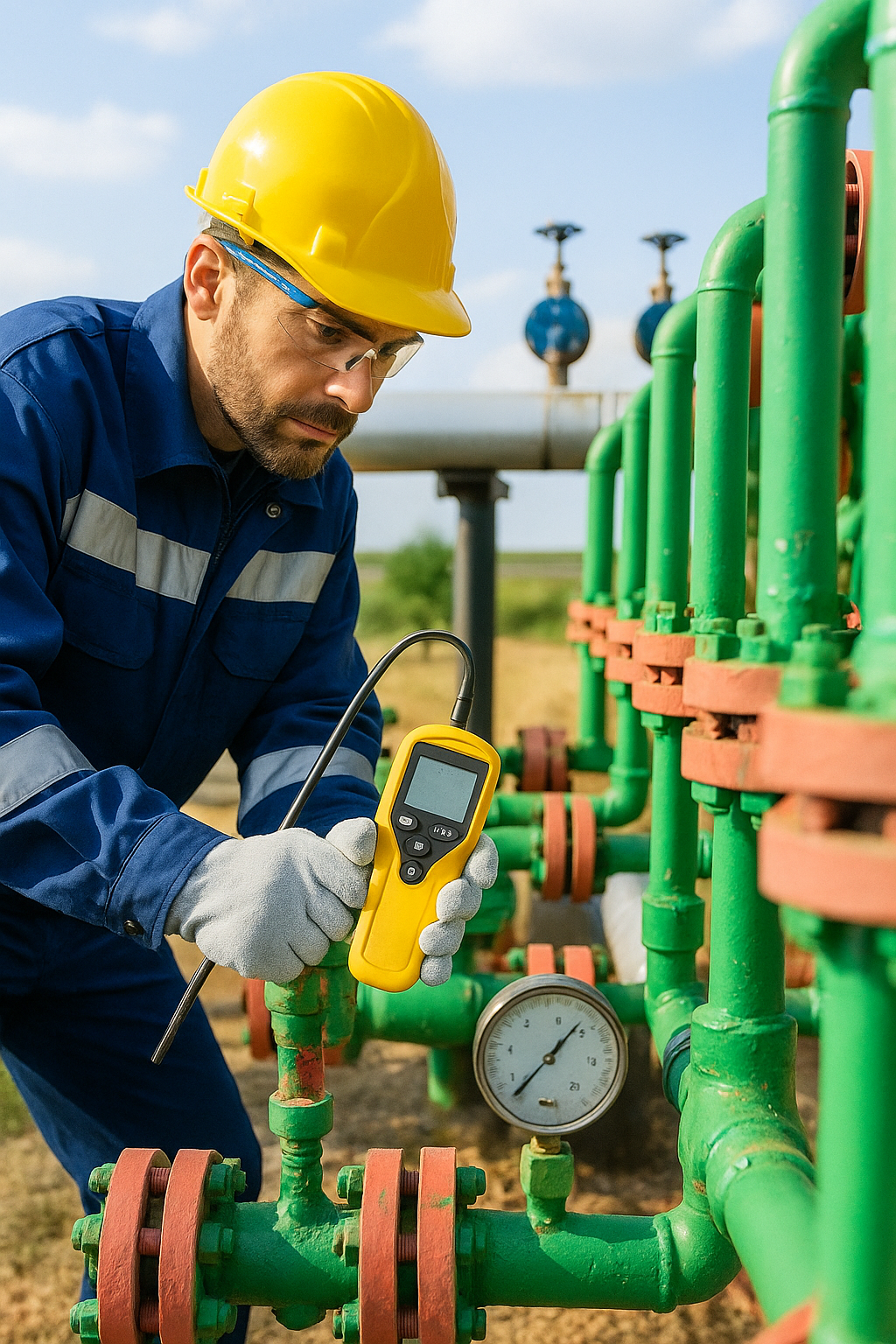
- Know the smell, sound, and sight indicators of a leak
- Install detectors in kitchens, furnace rooms, and utility spaces
- Store flammable materials away from gas appliances
- Ensure proper ventilation when using fuel-burning equipment
- Keep maintenance logs and inspection reports accessible
Why NOVA Gas Recommends A Layered Approach
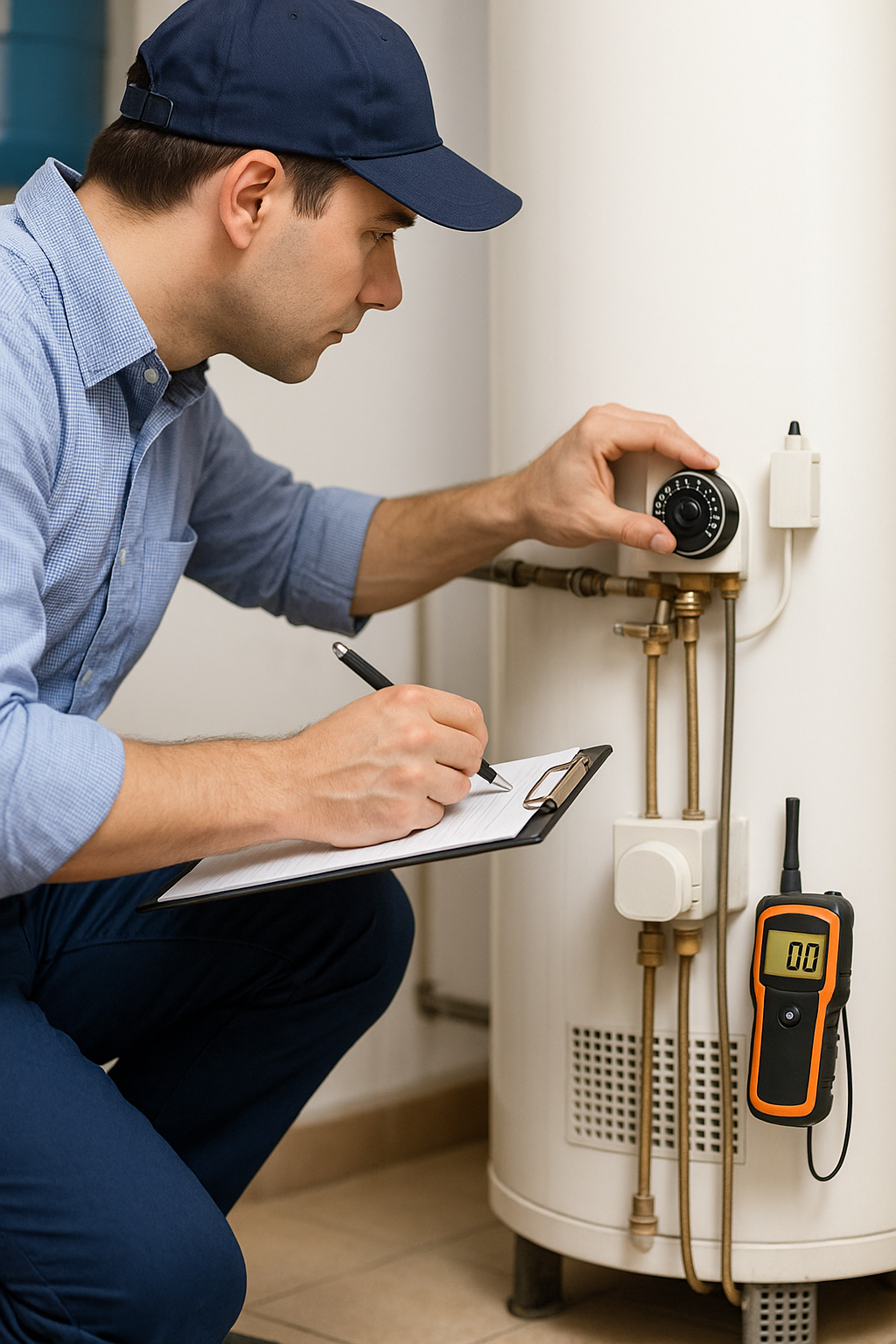
No single detection method works for all scenarios. NOVA Gas advises using a combination of sensory awareness, fixed and portable detectors, and regular professional inspections. The goal is early detection, safe evacuation, and prevention of recurrence.

